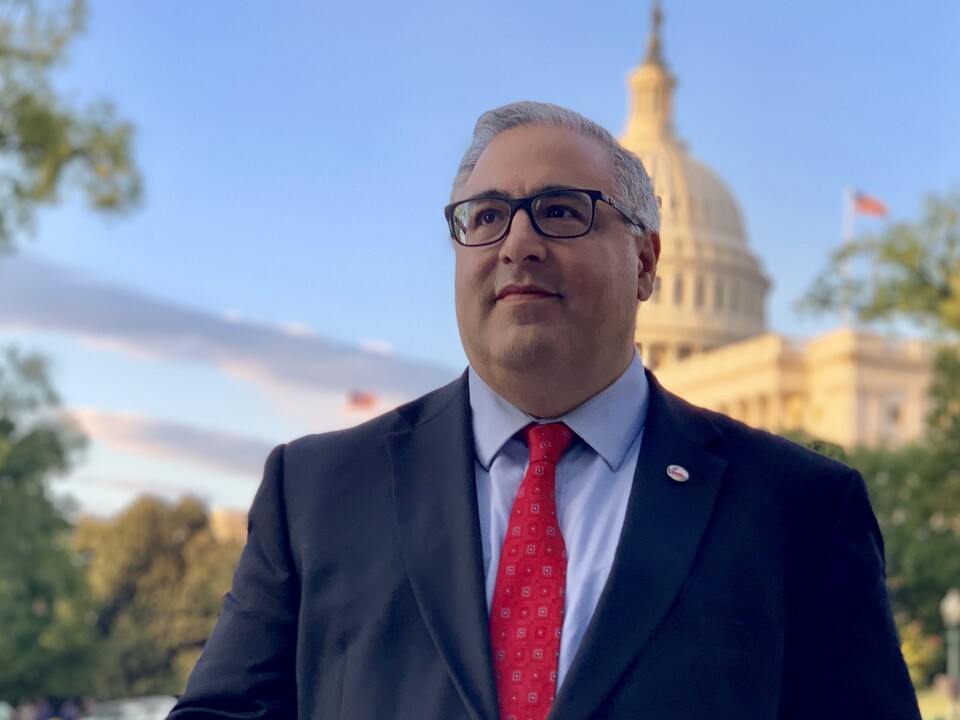“A Wall of Distrust”: Armenians Voice Overwhelming Skepticism on Azerbaijani Relations
8-minute read
In the wake of the 2020 Second Nagorno-Karabakh War and the subsequent ethnic cleansing of Artsakh in 2023, relations between Armenia and Azerbaijan have reached a critical juncture. As part of its ongoing work with the global Armenian community, Armagora.am, a project powered by The Future Armenian Foundation, continues its thorough series of public attitude surveys mapping Armenians’ views on key challenges facing the nation. This week’s focus examines Armenian perspectives on relations with Azerbaijan and prospects for peace in the region.
The latest Armagora poll results show a stark picture of deeply entrenched distrust and skepticism regarding Azerbaijan’s intentions and the possibility of genuine reconciliation. With over 95% of respondents viewing Azerbaijan as “an adversary” rather than a neighboring state or potential partner, the data shows the deep psychological impact of recent conflicts and historical grievances on Armenian collective thinking.
Widespread Opposition to Resettlement Proposals
Perhaps the most revealing finding concerns President Aliyev’s proposal for Azerbaijani resettlement in Armenia. An overwhelming 90.84% of respondents expressed strong opposition to this concept, deeming it “unacceptable.” This near-unanimous rejection reflects not only geopolitical concerns but deeply rooted existential anxiety about Armenian sovereignty and security.
Only 5.79% of respondents indicated conditional support for such resettlement if Armenians could return to Artsakh and other areas, highlighting the centrality of Artsakh to Armenian identity despite its recent loss. Alexander Manasyan, a political scientist, noted in a recent interview with Armagora, “The question of population exchange touches on fundamental issues of territorial integrity and historical memory that go far beyond mere policy considerations.”
Pessimism About Azerbaijan’s Peace Intentions
The survey reveals profound skepticism about Azerbaijan’s commitment to peace. When asked if meeting Azerbaijan’s demands would contribute to lasting peace, an overwhelming 96.26% responded negatively. This indicates a widespread perception that Azerbaijan’s diplomatic approach is viewed as coercive rather than conciliatory by Armenians.
Such skepticism is further reflected in responses about reconciliation possibilities. When asked if Armenian-Azerbaijani reconciliation is possible, the largest segments of respondents selected “No, Azerbaijan does not genuinely seek reconciliation” (39.83%) and “No, the animosity is too deep to overcome” (37.24%). Together, these negative perspectives account for over 77% of responses, with only about 21% seeing any possibility for reconciliation under various conditions.
International Community’s Role Viewed Critically
Another significant finding concerns perceptions of the international community’s effectiveness in addressing anti-Armenian sentiment in Azerbaijan. A majority (57.99%) view international efforts as “completely ineffective,” with an additional 26.83% rating them “somewhat ineffective.” This overwhelming sense that global institutions and powers have failed to address a core concern for Armenians may partly explain their reluctance to embrace diplomatic solutions.
Alluding to a history of “Western betrayal” of the Armenians during difficult times, Manasyan, who is also a professor of philosophy at Yerevan State University observed, “During the Soviet years, when the Sumgait line was being implemented throughout the republic, decisive voices against that Sumgait line were not heard from the West.”
Roots of Anti-Armenian Sentiment
When asked about the main drivers of anti-Armenian sentiment in Azerbaijan, respondents identified “state-led propaganda and nationalist policies” (34.85%) and “historical hostility and territorial ambitions” (29.53%) as the most significant factors. These views suggest that many Armenians see antagonism from Azerbaijan as systematic and institutionalized rather than merely circumstantial or policy-based.
The identification of “nationalist upbringing of children” (12.02%) as a contributing factor highlights concern about the long-term continuation of hostility across generations, making reconciliation more difficult. “Hatred toward Armenians probably derives from state propaganda and historical enmity. If there were no propaganda, if the historical foundations didn’t have this problem, an ordinary Azerbaijani would hardly be filled with hatred toward Armenians” Prof Manasyan observes.
What This Means for Peace Efforts
These findings present major challenges for peace efforts between Armenia and Azerbaijan. The deep distrust, combined with the perceived failure of international mediation, suggests that standard diplomatic approaches may find little support among Armenians.
The survey results indicate that any lasting peace agreement would need to address basic security concerns, historical grievances, and perceived institutional Armenophobia to gain acceptance. The data also suggests that trust-building actions and clear demonstrations of good faith from Azerbaijan would be necessary first steps to change Armenian public opinion toward more open positions.
Beyond Binary Solutions
While the poll results paint a picture of deep pessimism, they also reveal potential pathways forward. The combined 21.74% who see reconciliation as possible under various conditions (international guarantees, elimination of anti-Armenian sentiment, or lasting peace) represent a meaningful minority open to conditional engagement.
Examining these conditions more carefully could provide insight into potential confidence-building measures or security arrangements that might gradually shift the widespread perception of intractable conflict. Manasyan notes that “Reconciliation with them can be achieved if they also stand on the legal field in their demands… I consider it impossible that any expert community, even not completely objective but just somewhat, even minimally, when discussing this issue, would not come to the conclusion that Karabakh is Armenian, like Nakhichevan.”
Conclusion: An uncertain path
The Armagora poll results underscore that Armenian-Azerbaijani relations remain fraught with deep distrust and pessimism about reconciliation prospects. Nevertheless, understanding these perceptions is crucial for any stakeholders genuinely interested in promoting regional stability.
For Armenia’s leadership, navigating these competing pressures—addressing legitimate security concerns while pursuing necessary diplomatic engagement—represents a profound challenge. For the international community, the data suggests that more effective, targeted approaches to addressing anti-Armenian sentiment and providing credible security guarantees would be essential components of any successful peace initiative.
As the region continues to navigate post-conflict realities, these insights into Armenian attitudes provide valuable context for understanding reactions to diplomatic developments and potential pathways toward a more stable, if not immediately warm, relationship between these neighboring states.







